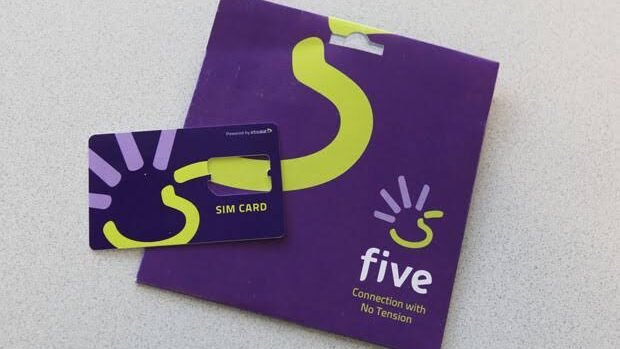The UAE has become a hub for cutting-edge telecommunications, offering residents and tourists seamless connectivity and access to modern technology. Among the topics of interest in this domain is the concept of a “five SIM card” policy. The term refers to regulatory frameworks and guidelines surrounding the issuance and use of SIM cards by telecom providers in the UAE.
This article delves into the five SIM card policy, explaining its relevance, the rules governing it, its benefits, and the impact on residents and businesses.
What Is the Five SIM Card Policy?
In the UAE, telecom operators like Etisalat, du, and Virgin Mobile are governed by regulatory guidelines established by the Telecommunications and Digital Government Regulatory Authority (TDRA). The five SIM card policy refers to a rule that allows individuals to register and own up to five active SIM cards under their name across multiple providers.

This policy aims to strike a balance between convenience and regulatory oversight, ensuring that users have sufficient access to telecommunication services while preventing misuse or fraudulent activities.

Key Features of the Five SIM Card Policy
- Registration and Verification
Each SIM card issued in the UAE must be registered under the user’s name through a valid Emirates ID or passport for tourists. This stringent verification process helps prevent unauthorized use and ensures accountability. - Limit of Five SIM Cards
Individuals can register up to five SIM cards across all telecom providers. For example, a person may hold three SIM cards from Etisalat and two from du, or any other combination. - Unified Database
The TDRA maintains a unified database to monitor and manage SIM card registrations, ensuring that no individual exceeds the five-SIM limit. - Fair Usage Policy
Telecom operators implement fair usage policies to ensure that all users benefit from the network without overloading it. - Renewal and Deactivation
Users must renew their SIM card registrations periodically to keep them active. Failure to do so may result in deactivation.
Why Was the Policy Introduced?
The five SIM card policy was introduced to address multiple concerns in the telecommunications sector, including:

- Preventing Fraud and Identity Theft
With the rise of telecom-related fraud globally, regulating the number of SIM cards an individual can own helps curb misuse, such as the use of unregistered SIM cards for illegal activities. - Enhancing Security
By linking each SIM card to an individual’s identity, the policy promotes transparency and security in communications. - Streamlining Oversight
The limit allows authorities to monitor and manage the use of telecom services more effectively, ensuring compliance with regulations. - Promoting Responsible Usage
The cap on the number of SIM cards encourages users to manage their telecom accounts responsibly, avoiding unnecessary expenditures or misuse.
Benefits of the Five SIM Card Policy
The policy offers several advantages for both users and the telecom industry:
- Convenience for Users
The ability to own multiple SIM cards enables users to separate personal and professional communication, or even benefit from different data and call packages offered by various providers. - Flexibility for Businesses
Entrepreneurs and small business owners can leverage multiple SIM cards to manage customer communications, marketing campaigns, and operational tasks efficiently. - Enhanced Accountability
Linking SIM cards to verified identities ensures that all users are held accountable for their telecom activities, fostering a safer digital environment. - Prevention of Network Congestion
The cap on SIM cards helps telecom providers manage network resources more effectively, improving overall service quality.
Who Does the Policy Apply To?
The five SIM card policy applies to all residents, citizens, and visitors in the UAE. However, there are slight variations depending on the user category:
- Residents and Citizens
Residents and UAE nationals are required to register their SIM cards using their Emirates ID. The five-SIM limit applies to all active SIM cards registered under their name. - Tourists and Visitors
Tourists can also obtain SIM cards during their stay in the UAE by presenting their passport and visa details. The same five-SIM limit applies. However, tourist SIM cards often have shorter validity periods and may come with specific usage conditions. - Corporate Accounts
Businesses and organizations can register multiple SIM cards under a corporate account. The five-SIM limit typically does not apply to corporate accounts, as they are designed to meet organizational needs.
Practical Use Cases for Multiple SIM Cards
- Separation of Personal and Work Life
Many professionals in the UAE use one SIM card for personal communication and another for work-related calls and emails. - Cost Optimization
Telecom providers often offer competitive data and voice packages. Users may opt for different SIM cards to benefit from the best deals available. - Travel and Roaming
Some users maintain separate SIM cards for international roaming or travel to avoid high charges on their primary number. - Specialized Business Needs
Businesses, especially small and medium enterprises, use multiple SIM cards to handle high call volumes or manage different departments effectively.
Challenges and Considerations
While the five SIM card policy offers numerous benefits, there are some challenges and considerations for users:
- Management of Multiple SIM Cards
Managing payments, renewals, and balances for multiple SIM cards can be cumbersome for some users. - Security Risks
Although the policy enhances accountability, users must ensure that their SIM cards are not lost or misused, as any fraudulent activity on their registered number is their responsibility. - Monitoring Usage
Users need to keep track of their usage to avoid exceeding limits or violating telecom provider policies. - Regulatory Compliance
Non-compliance with registration requirements or exceeding the five-SIM limit can result in penalties or service disruptions.
The Role of Telecom Providers
Telecom providers in the UAE, including Etisalat, du, and Virgin Mobile, play a crucial role in implementing the five SIM card policy. They ensure that:
- SIM card registration processes are smooth and efficient.
- Users are notified about renewal deadlines and policy updates.
- Services adhere to TDRA guidelines and fair usage policies.
Future Outlook
As the UAE continues to evolve as a global telecom hub, the five SIM card policy will likely adapt to emerging trends and technologies. With the rise of eSIM technology and digital communication platforms, traditional SIM card usage patterns may change. However, the principles of security, accountability, and convenience will remain at the core of the UAE’s telecom regulations.
Conclusion
The five SIM card policy in the UAE reflects the country’s commitment to maintaining a secure and efficient telecommunications environment. By balancing user convenience with regulatory oversight, the policy ensures that residents and visitors can enjoy reliable connectivity while adhering to strict security standards.
For users, understanding the policy and managing their SIM cards responsibly is key to maximizing the benefits of this system. Whether for personal, professional, or business use, the five SIM card policy empowers individuals and organizations to stay connected in one of the world’s most dynamic and technologically advanced nations.
Do follow Uae stories for more Updates
Gold Price History in the UAE: A Journey Through Time and Trends












